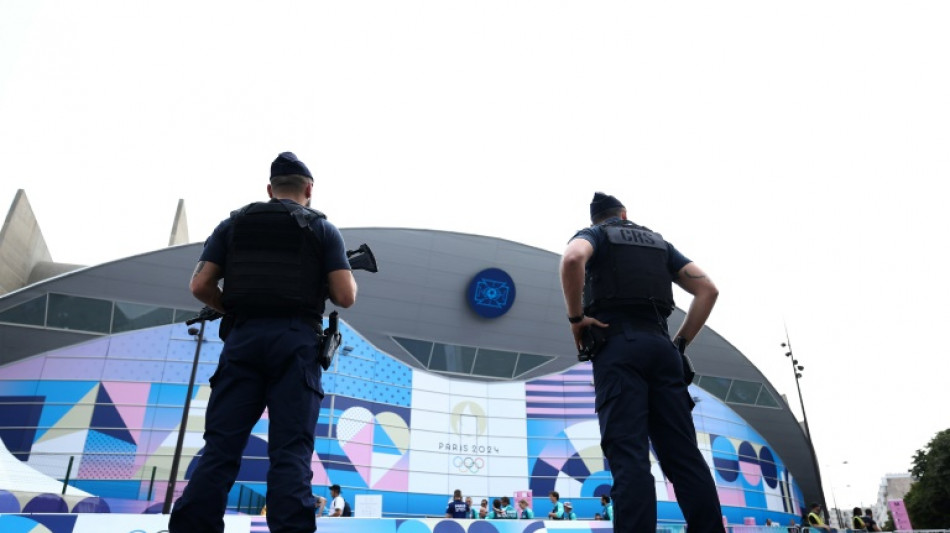
-
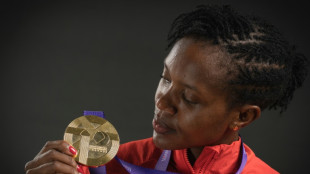 Kenya eye double gold on penultimate day of world championships
Kenya eye double gold on penultimate day of world championships
-
Canada, Mexico leaders agree to seek 'fairer' trade deal with US
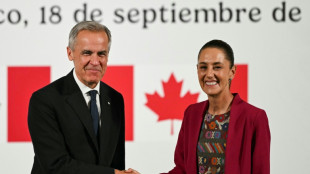
-
 How did an Indian zoo get the world's most endangered great ape?
How did an Indian zoo get the world's most endangered great ape?
-
Amid emotional retirement reveal, Kershaw focused on beating Giants
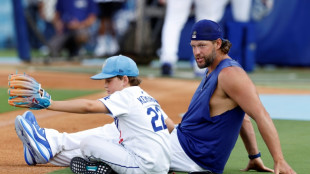
-
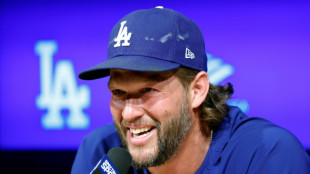 Dodgers pitching icon Kershaw to retire after 18th MLB season
Dodgers pitching icon Kershaw to retire after 18th MLB season
-
Netflix seeks 'Money Heist' successor in Spanish hub
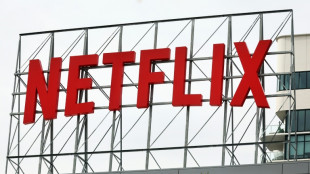
-
 Taiwan running out of time for satellite communications, space chief tells AFP
Taiwan running out of time for satellite communications, space chief tells AFP
-
Gaza, Palestinian future to dominate UN gathering
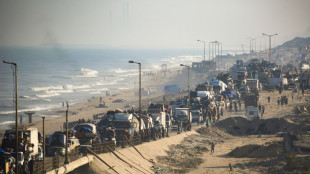
-
 Young plaintiffs stand tall after taking on Trump climate agenda in court
Young plaintiffs stand tall after taking on Trump climate agenda in court
-
Kirk killing sparks fierce US free speech debate
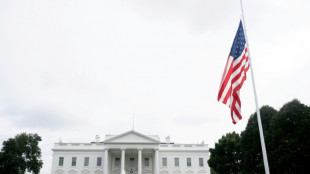
-
 Eying bottom line, US media giants bow to Trump
Eying bottom line, US media giants bow to Trump
-
Indie studio bets on new game after buying freedom from Sega
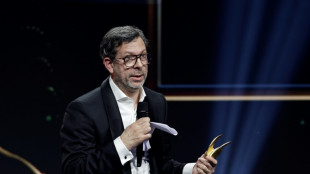
-
 Marseille hoping to catch PSG at the right time in Ligue 1
Marseille hoping to catch PSG at the right time in Ligue 1
-
Japan inflation slows in August, rice price surges ease

-
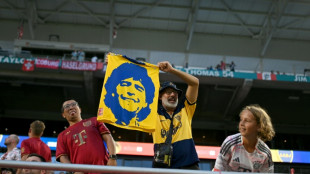 Court seizes assets of Maradona's lawyer, sisters in fraud case
Court seizes assets of Maradona's lawyer, sisters in fraud case
-
RFK Jr panelists make initial changes to childhood vaccine schedule
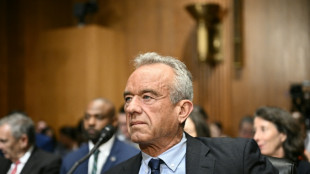
-
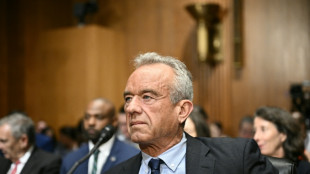 RFK Jr panelists make first changes to childhood vaccine advice
RFK Jr panelists make first changes to childhood vaccine advice
-
Progress stalled on Canada's pollution reduction goal
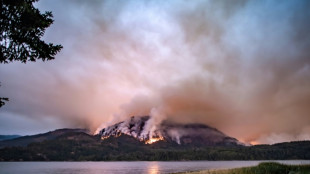
-
 UN Security Council votes on reimposing Iran nuclear sanctions
UN Security Council votes on reimposing Iran nuclear sanctions
-
Depleted France eager to 'throw sand in England's machine' in World Cup semi-final
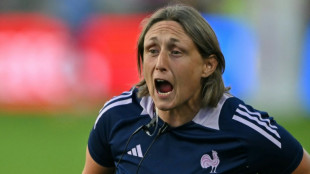
-
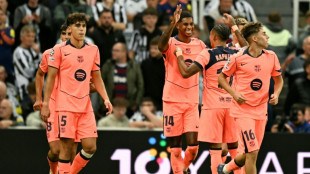 Barcelona beat Newcastle, Man City see off Napoli in Champions League
Barcelona beat Newcastle, Man City see off Napoli in Champions League
-
Texans' Ward won't face domestic violence charges
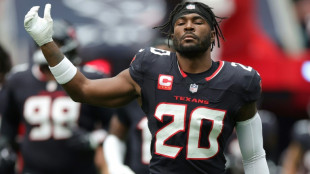
-
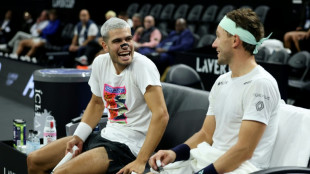 Alcaraz headlines Team Europe in Laver Cup title defense
Alcaraz headlines Team Europe in Laver Cup title defense
-
Rashford bags first Barca goals to seal win at Newcastle
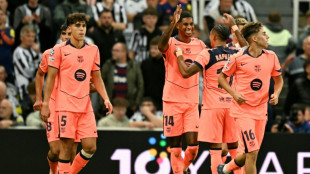
-
 Haaland hits 50 Champions League goals in Man City cruise over 10-man Napoli
Haaland hits 50 Champions League goals in Man City cruise over 10-man Napoli
-
Dodgers pitching icon Kershaw to retire - club

-
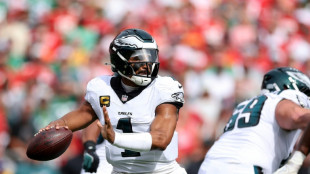 Eagles seek answers against Rams in battle of NFL unbeatens
Eagles seek answers against Rams in battle of NFL unbeatens
-
Afghanistan crash out of Asia Cup after six-wicket loss to Sri Lanka
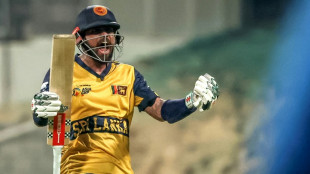
-
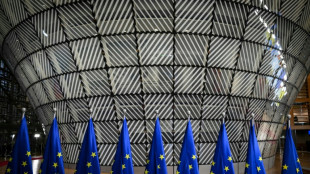 EU states agree broad UN emissions target avoiding 'embarrassment'
EU states agree broad UN emissions target avoiding 'embarrassment'
-
US regulator sues Ticketmaster over 'illegal' ticket schemes

-
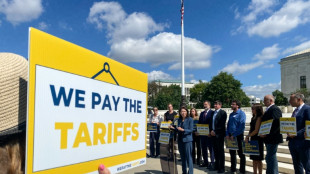 US small businesses slam Trump tariffs as legal fight proceeds
US small businesses slam Trump tariffs as legal fight proceeds
-
All smiles as Melania and Kate meet kids in first public event
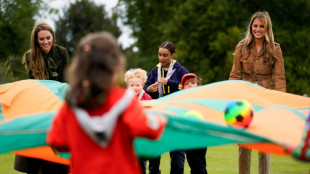
-
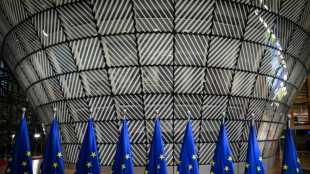 EU states agree 'face-saving' broad UN emissions-cutting target
EU states agree 'face-saving' broad UN emissions-cutting target
-
Madonna to release new album next year
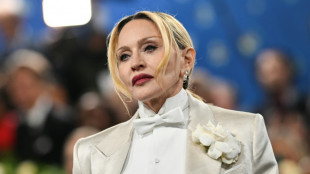
-
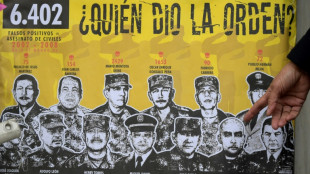 Colombian court issues first sentences for ex-soldiers over civilian killings
Colombian court issues first sentences for ex-soldiers over civilian killings
-
Chip-maker Nvidia takes stake in rival Intel
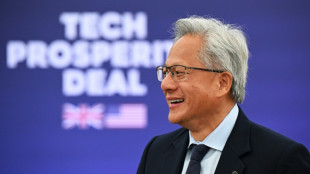
-
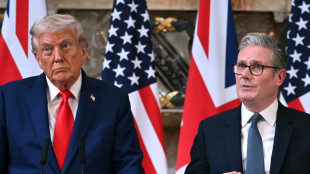 Putin has let me down, says Trump at end of UK state visit
Putin has let me down, says Trump at end of UK state visit
-
Melania's hat, Epstein's ghost: takeaways from Trump's UK visit
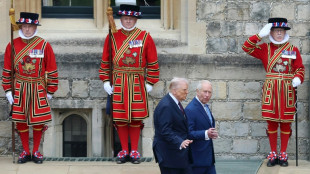
-
 UN Security Council to vote on Iran nuclear sanctions Friday
UN Security Council to vote on Iran nuclear sanctions Friday
-
AI-backed robot painting aims to boost artist income

-
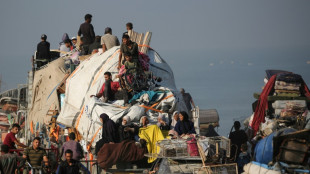 Israel bombards Gaza City, army says four soldiers killed
Israel bombards Gaza City, army says four soldiers killed
-
Former Barca presidents deny corruption at ref scandal court appearance
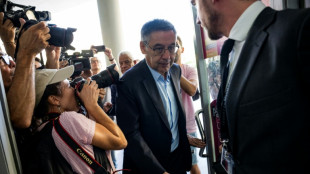
-
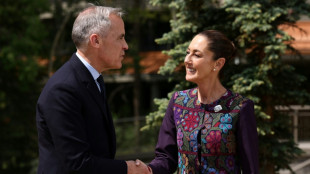 Canada, Mexico leaders meet amid US tariff war
Canada, Mexico leaders meet amid US tariff war
-
Mass rallies, disruptions in France on day of anger against Macron
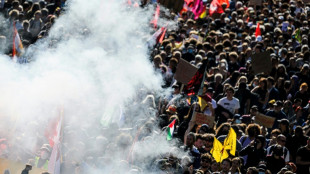
-
 Piastri says team orders clarified at McLaren
Piastri says team orders clarified at McLaren
-
'Box office' McLaughlin-Levrone -- rarely seen but worth the wait

-
 Stocks rise on Nvidia-Intel deal, Fed rate cut
Stocks rise on Nvidia-Intel deal, Fed rate cut
-
US medical panel insists it's 'pro-vaccine'
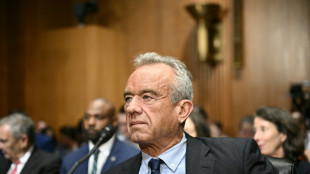
-
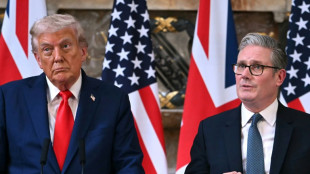 Trump says Putin has 'let me down' as UK state visit ends
Trump says Putin has 'let me down' as UK state visit ends
-
IMF proposes US Treasury official as second-in-command
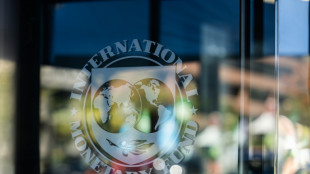

UN human rights experts criticise 'unneccessary' and 'unlawful' Olympic security
Three human rights experts commissioned by the United Nations on Tuesday issued a report saying some security measures for the 2024 Paris Olympics were "unnecessary or disproportionate" while others "were discriminatory or even unlawful".
The three experts, who were commissioned by the Human Rights Council but were not speaking on behalf of the UN, said France must carry out "an independent and impartial review" of the measures deployed during the Games.
"French authorities took a number of reasonable measures to ensure that the Olympic Games were free from terrorist violence," the experts said. "Yet, some security measures appeared to be unnecessary or disproportionate, while others were discriminatory or even unlawful."
The French Ministry of the Interior declined to comment on the report.
The report noted that France has faced significant terrorist threats in recent years.
"Under international law, governments must act diligently to prevent threats to life posed by terrorism, but must always comply with human rights law," the report said.
"In too many cases, security measures were seemingly applied in an indiscriminate or overbroad manner, that was not necessary or proportionate to meet any specific, evidence-based risks posed by particular individuals," it added.
They pointed to "unprecedented surveillance...including the use of drones and 'algorithmic' video tools with artificial intelligence".
"We also found patterns of discriminatory policing, targeting individuals or groups for political views, religious affiliation or ethnic background," the experts said.
In some cases, measures appeared to be aimed at preventing disruptive public protests, the report said.
"Some of the measures arbitrarily interfered with the freedoms of expression, assembly and association, as well as the rights to privacy, reputation and liberty, and to participate in cultural life."
Some measures even violated French law, "as evidenced by the higher than usual number of annulments by the courts".
"Excessive measures are not necessary for security – and can counterproductively fuel grievance narratives that lead to radicalisation," the experts said.
The report was signed by three UN independent experts: Ben Saul, a Sydney University law professor and Special Rapporteur for the promotion and protection of human rights and fundamental freedoms while countering terrorism; Colombian Gina Romero, Special Rapporteur on the rights to freedom of peaceful assembly and of association; and Alexandra Xanthaki, a law professor at Brunel University in London and UN Special Rapporteur on cultural rights.
They urged France "to conduct an independent and impartial review of the security measures used during the Olympic Games" to "draw lessons for France and other countries on how to secure future major public events".
They said that with the Winter Olympics in Italy and the football World Cup in North America coming up international sporting bodies, such as the International Olympic Committee and FIFA, must "assess the human rights risks of their events and collaborate with host nations to mitigate them".
D.Khalil--SF-PST
